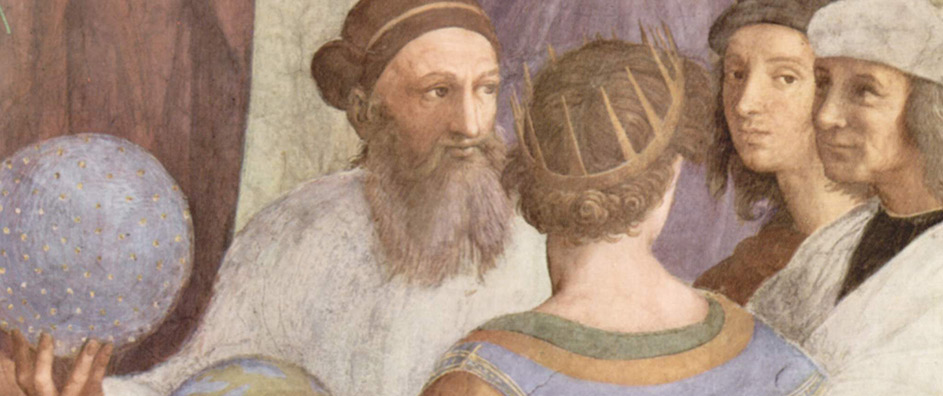The ancient teachings of Zoroaster, a pivotal figure in Persian history, possess a profound resonance within the framework of contemporary Bahá’í principles. These ancient doctrines not only enrich our understanding of spiritual evolution but also promise a transformative shift in the collective consciousness of humanity. By examining the intertwining legacies of Zoroastrianism and Bahá’í teachings, one can unearth a treasure trove of wisdom that elucidates the perennial quest for truth, justice, and unity.
To comprehend the significance of Zoroaster, one must delve into the historical and cultural milieu of ancient Persia. Zoroaster, or Zarathustra, is believed to have lived around the 6th century BCE, although scholarly consensus on his dates remains elusive, which itself reflects the enigmatic nature of his teachings. His theological innovations introduced the concept of an all-powerful God, Ahura Mazda, who embodies goodness and truth. This juxtaposition of light against darkness characterizes the Zoroastrian cosmology, rendering ethical dualism central to its worldview.
Central to Zoroastrianism is the notion of free will, a philosophy that resonates deeply with Bahá’í beliefs. Zoroaster posited that individuals have the capacity to choose between good and evil, a principle that grants humanity both agency and responsibility. This idea parallels the Bahá’í conviction that each person is endowed with the ability to make informed choices, shaping their destiny and contributing to the collective advancement of society.
The Zoroastrian tenets of righteousness embody a strikingly modern ethical framework. Key to this is the concept of Asha, or cosmic order, which Zoroaster emphasized as essential for personal and societal well-being. Asha mandates that adherents engage in honest and virtuous conduct, fostering harmony with oneself and with the world. This teaching extends an invitation to reflect upon moral integrity, urging practitioners to embody this principle within their daily interactions. Such an ethical compass resonates profoundly with the Bahá’í principles of truthfulness and justice, promoting a collaborative and peaceful society.
In tandem with these ethical considerations, Zoroaster also articulated a vision of social justice and equality. His teachings admonished against oppression and discrimination, calling for the upliftment of the marginalized and the establishment of equitable systems. In the contemporary context, the Bahá’í Faith draws extensively from this emphasis on justice, advocating for the emancipation of all individuals regardless of background. Indeed, such a call for unity and equality stands as a bastion against the divisive forces that often rend society asunder.
Moreover, the Zoroastrian celebration of nature and the environment underscores an ecological ethos that permeates Bahá’í teachings. The sanctity of creation, articulated through rituals and symbols in Zoroastrian practice, positions environmental stewardship as a sacred duty. This intrinsic connection to nature parallels the Bahá’í commitment to sustainability, emphasizing the symbiotic relationship between humanity and the natural world. Exploring these interrelated principles fosters a heightened awareness of our existential responsibilities to future generations.
The eschatological visions inherent in both Zoroastrianism and Bahá’í philosophy also warrant meticulous exploration. Zoroaster envisioned a final renovation of the world, a future age characterized by universal peace, justice, and the triumph of good over evil. Similarly, Bahá’í teachings espouse a narrative of progressive revelation, positing that humanity is on an evolutionary trajectory toward unity and spiritual enlightenment. This shared aspiration for a transformed world invites individuals to engage with the prophetic messages that beckon toward a brighter future, sparking curiosity and igniting hope within the human spirit.
The exploration of Zoroastian wisdom within the context of Bahá’í teachings serves to highlight the transcultural and transhistorical dimensions of spirituality. Both traditions emphasize the necessity of personal transformation as a precursor to societal change. Zoroaster’s ethical constructs implore individuals to transcend their egoistic impulses, while Bahá’í principles advocate for a global consciousness that nurtures interdependence among humanity. This profound interconnectedness fosters a deeper appreciation for the diversity of paths that lead towards the ultimate truth.
As we navigate the complexities of modernity—a landscape rife with conflict and division—it is imperative to draw inspiration from the ancient wisdom of Zoroaster. The teachings imbue individuals with the insight necessary to reconcile contradictions and embrace unity amidst diversity. This synthesis of diverse beliefs could catalyze a paradigm shift, engendering a culture steeped in empathy and respect for all humanity.
In conclusion, the ancient Persian wisdom of Zoroaster heralds a compendium of teachings that offer guidance and illumination for contemporary existence. By delving into the core principles of Zoroastrianism and their synergistic relationship with Bahá’í teachings, one discovers an expansive vista of ethical, spiritual, and ecological insights. This exploration not only piques intellectual curiosity but also promises a shift in perspective, urging a comprehensive reevaluation of our roles as stewards of the Earth and architects of a united world. The enduring legacy of Zoroaster ignites a flame of inquiry, prompting us to collectively memorialize the virtues that can elevate our shared human experience to its intended heights.
